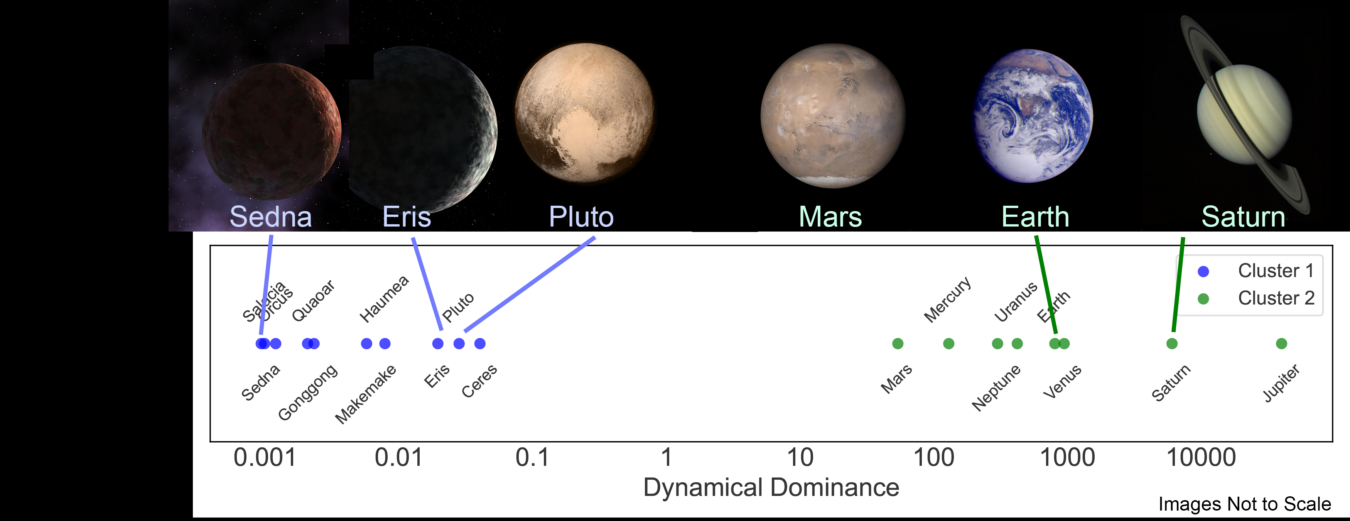Rita Aksenfeld | July 23, 2024
You might be able to name the planets in our solar system, but can you define what a planet is? Even the International Astronomical Union (IAU), the organization in charge of defining astronomical terms, has some trouble with this. The current IAU definition of a planet is somewhat ambiguous and doesn’t include planets outside our solar system (exoplanets). This can cause confusion when scientists are talking about celestial objects.
To address these problems, UCLA Professor Jean-Luc Margot (Dept of Earth, Planetary, and Space Sciences and Dept of Physics and Astronomy) and his colleagues described proposals to better define the term planet in a recent paper published in The Planetary Science Journal. These proposed definitions include specific limits for what counts as a planet, and can be applied to exoplanets. “A more precise definition of the term planet is desperately needed,” says Margot.
To find these limits, they ran a mathematical method on properties of objects in the solar system to see which objects clustered together. As Margot explains, “this analysis suggests that there are distinct groups in the solar system, and that can be used as a starting point for planetary taxonomy [defining planets]”. For example, if an object can clear its path of the smaller objects nearby, it is dynamically dominant. All the planets in our solar system are dynamically dominant, but other objects including dwarf planets like Pluto and asteroids are not. So this property can be included in the definition of planet.
“We apply these unsupervised clustering methods to the bodies in the solar system, and we find that they separate into different groups,“ Margot explains. “It forces us to think about why they split into such different groups, and what that tells us about the formation and the evolution of planets.” These methods aren’t specific to our solar system – they can be used for planets orbiting other stars too. This means that any new objects discovered in our solar system or in another planetary system can be classified as a planet or not without ambiguity.
At the IAU General Assembly in August, Professor Margot will present these proposals for discussion with other scientists. While any official change in the IAU definition of planet is a few years off, Margot hopes to “start a conversation about improving it”.
This work was a collaboration between Prof. Margot, Prof. Brett Gladman at University of British Columbia, Vancouver and Tony Yang, a student at Chaparral High School in Temecula, CA. If you are interested in learning more about this and other work, please visit Prof. Margot’s website.
Tags: Exoplanets, Research, space
 Planets and non-planets cluster into two distinct groups based on their properties. Image credit: Jean-Luc Margot (graph), NASA (images)
Planets and non-planets cluster into two distinct groups based on their properties. Image credit: Jean-Luc Margot (graph), NASA (images)